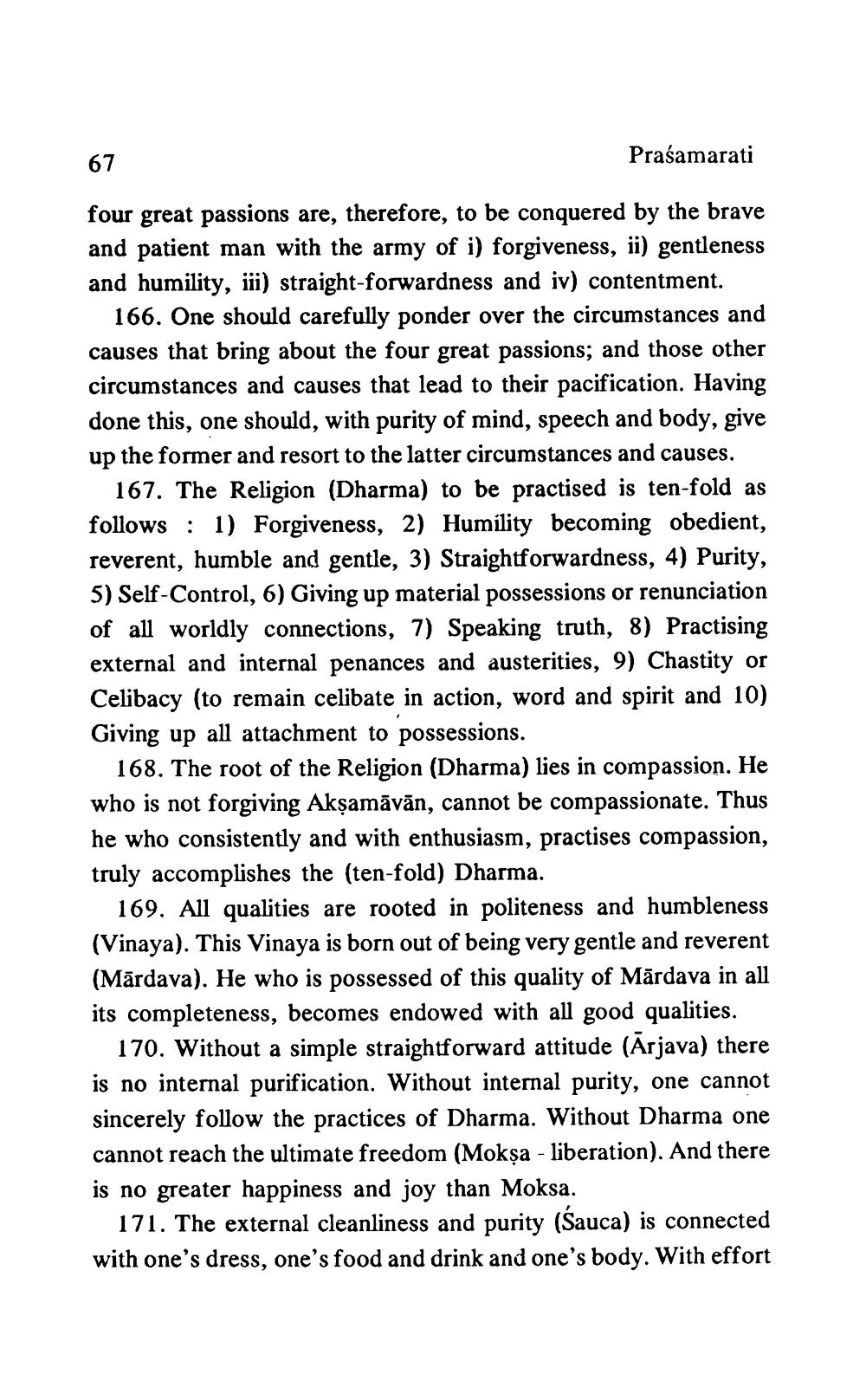________________
67
Prasamarati
four great passions are, therefore, to be conquered by the brave and patient man with the army of i) forgiveness, ii) gentleness and humility, iii) straight-forwardness and iv) contentment.
166. One should carefully ponder over the circumstances and causes that bring about the four great passions; and those other circumstances and causes that lead to their pacification. Having done this, one should, with purity of mind, speech and body, give up the former and resort to the latter circumstances and causes.
167. The Religion (Dharma) to be practised is ten-fold as follows 1) Forgiveness, 2) Humility becoming obedient, reverent, humble and gentle, 3) Straightforwardness, 4) Purity, 5) Self-Control, 6) Giving up material possessions or renunciation of all worldly connections, 7) Speaking truth, 8) Practising external and internal penances and austerities, 9) Chastity or Celibacy (to remain celibate in action, word and spirit and 10) Giving up all attachment to possessions.
168. The root of the Religion (Dharma) lies in compassion. He who is not forgiving Akṣamāvān, cannot be compassionate. Thus he who consistently and with enthusiasm, practises compassion, truly accomplishes the (ten-fold) Dharma.
169. All qualities are rooted in politeness and humbleness (Vinaya). This Vinaya is born out of being very gentle and reverent (Mārdava). He who is possessed of this quality of Mardava in all its completeness, becomes endowed with all good qualities.
170. Without a simple straightforward attitude (Arjava) there is no internal purification. Without internal purity, one cannot sincerely follow the practices of Dharma. Without Dharma one cannot reach the ultimate freedom (Mokṣa liberation). And there is no greater happiness and joy than Moksa.
171. The external cleanliness and purity (Śauca) is connected with one's dress, one's food and drink and one's body. With effort




